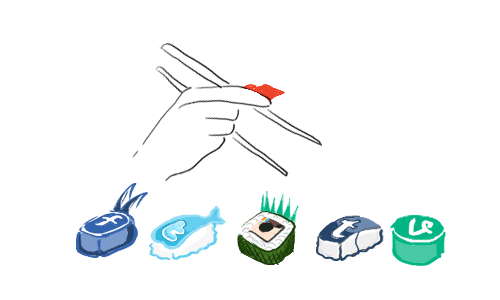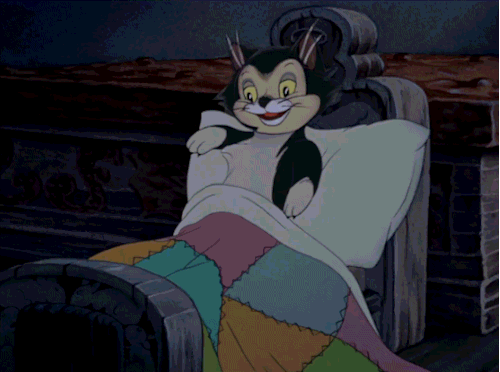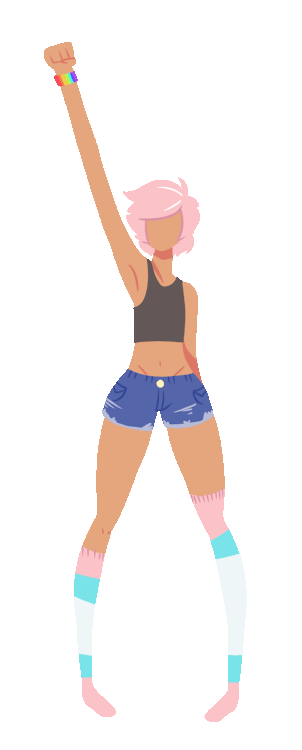Text
GENERATION Z
Within the article “Move Over, Millennials, Here Comes Generation Z” it discusses the transition from the previous generation, known as Millennials to the new generation, known as Generation Z. To state some facts before going in depth, millennials are born in 1980-1995, and Generations Z’s are born from 1996-2010.
In contrast to one another, millennials are described as people who are self-involved, dependent, failing financially in the real world as their expectations of a dream job and life collide with reality. On the other hand, generation Z are described as people who are conscientious, hard-working, somewhat anxious, and mindful of the future.
When thinking of generation Z, most people think of technology, but generation Z is the first generation to be raised in the era of smartphones. Millennials were defined by iPods and MySpace. Generation Z’s are defined by iPhones and Snapchat.

With the transition from Millennials to Generation Z, there was also a population growth for biracial children, and social issues have shifted. Same sex marriage has gone from a controversial political issue to a constitutional right recognized by the Supreme Court.
Millennials are described as narcissistic brats who expect the boss to fetch them coffee, since they were largely raised by baby boomers, who according to many, are the most iconoclastic, self-absorbed and grandiose generation in history. Generation Z tends to be the product of Generation X, a relatively small, jaded generation that came of age in the post-Watergate, post-Vietnam funk of the 1970s, when horizons seemed limited. Those former kids, have tried to give their children the safe, secure childhood that they never had.
According to a survey of risky behavior by the Centers for Disease Control and Prevention, the percentage of high school students who had at least one drink of alcohol in their lives declines to about 66% in 2013, from about 82% in 1991. The number who reported never or rarely wearing a seatbelt in a car driven by someone else declined to about 8%, compared with 26% in 1991.

In the documentary “Generation Like” it discusses that the new generation, generation Z are essentially slaves to technology. The people of generation Z are considered ‘like hungry’ who go fishing for likes, and attention on social media to boost their self-confidence. Being born from 1996- 2010 means being born into an era of technology.
Those born in generation Z are on all sorts of social platforms such as: Instagram, Snapchat, YouTube, Tumblr, Vine, and Facebook. While on these platforms they upload photos, videos, and blogs, they get a respond of their content from the ‘like’ button. This button, provides fame to certain people. Since there is a rise in people getting ‘internet famous’ people become more competitive for likes, shares, and comments on the content they post. In a way, the content posted is like a competition for those uploading.

I agree with the article “Move Over, Millennials, Here Comes Generation Z” . Firstly, I agree with the article because it discussed that differences and drastic changes between millennials and generation Z’s. In addition, most of the statements said in the article were very true since Generation Z’s learned from millennials, grew up into technology, and learned from their parents, most likely, generation X’s. Generation Z learned from the Vietnam War, the occurrence on September 11, and social issues. These concepts have helped Generation Z’s obtain more knowledge to apply it to their own generation and improve. I did not feel targeted in a rude way, instead I felt as if all the statements said could help our generation, or generations in the future to become better.
I agree with the documentary “Generation like” because I believe that our society nowadays is prisoners to their devices. Firstly, most people in generation Z are consumed in technology, and social media. In addition, with the up rise of technology and social media led those born in generation Z ‘hungry’ for likes, followers, subscribers, retweets, and reblogs. I believe that in our society, a lot of people are attached to their devices and because of this, companies have chose those who are ‘internet famous’ to advertise their products. I think that this documentary does not apply to all of the children in generation Z since not every single person is not addicted to their devices, and hungry for attention social media. Not every teenager wants to be put out online.
As someone who was born in 1999, I am apart of Generation Z. I believe that the article and documentary don’t apply to me personally since I don’t consider myself to be attached to my phone and wanting many likes, reblogs, and attention on social media. While reading the article and saw the statement: “ Generation Z tends to be the product of Generation X, a relatively small, jaded generation that came of age in the post-Watergate, post-Vietnam funk of the 1970s, when horizons seemed limited. Those former latchkey kids, who grew up on Nirvana records and slasher movies, have tried to give their children the safe, secure childhood that they never had” (Williams) I thought of my parents since they were apart of generation X. My parents were apart of generation X and have struggled a lot while growing up, and wants to provide my siblings and I with all we can get since they have never experienced it.
WORKS CITED
"Generation Like." PBS. Public Broadcasting Service, n.d. Web.
Williams, Alex. "Move Over, Millennials, Here Comes Generation Z". Nytimes.com. N.p., 2017. Web.
1 note
·
View note
Text
PSYCHOLOGICAL THEORY
SIGMUND FREUD CASE STUDY- DORA
Freud psychoanalysed Dora, mainly using the dream interpretation technique. With the dream interpretation technique there is no solid way to analyse Dora’s brain. Since you cannot get a solid answer, Freud could have gotten false analysis. In some cases, dreams may have no meaning and have no effect on a person. Due to the fact that there is so little knowledge on how the human brain works we can’t support the fact that dreams could be meaningless or meaningful. In some scenarios, Freud could have received false assumptions which can cause different outcomes to how you might handle a situation which could result badly.
While sleeping, the person is in a state of being unconscious. Within this state it contains all the feeling, urges, or instinct that are beyond our awareness but it affects our expression, feeling, and action. The cons of using the dream interpretation is that it could show a person’s true feelings, and desires.

Since the human brain is a complex organ, it is hard to understand and you cannot obtain proper answers. In the case with Dora, Freud could have analysed Dora in a different matter since the brain is so hard to analyse. Dora could have been fully revived if she were to be treated in a different way. Dora had developed hysteria and became depressed, suicidal, frequently lost consciousness, had attacks of amnesia and suffered migraines. This could have been treated with medicine and talking about her past life, and how she had felt about those events, instead of her dreams.

1 note
·
View note
Text
FEMINIST THEORY
“THE SLUT, THE SPINSTER AND THE PERFECT WOMAN”
youtube
Martha Mosse, the speaker of the video “The slut, the spinster, and the perfect woman” she discusses the dangers of certain labels and explore and highlights them.

One of the labels Mosse discusses in the video is: “Perfect”. She believes that perfection disguises as a compliment, and that it poses as an achievable idea, but it is a lie to aspire to. The contemporary and historical economy relied on the ideal of perfection. The beauty and fashion industry are examples of the label ‘perfection’ is being used. The beauty and fashion industry project a woman to be perfect if she had the perfect skin, eyes, butt, tan, lips, and hair, but all of the above are unrealistic. The health and fitness industry relies on woman and men being self-conscious about themselves, and create workouts and diets for the audience to achieve the perfect body. Mosse claims that perfection is subjective because everyone has different views on what perfection is, thus they cannot achieve or have the perfect figure. The danger with advertising an impossible ideal as achievable is that it makes Woman and Men feel like failures.

The next label Mosse discusses in the video is: “Spinster”. A Spinster is an unmarried woman that is typically older than the usual age for marriage. In the mind of Woman, they believe that as they age, their body is also going away, and that her purpose of finding happiness is also lost. But, on the other hand, the male version of being a spinster, also known as a ‘bachelor’ is depicted as enjoying a party lifestyle, and can get people half their age. No matter how happy or successful the woman is, she is pitied and is seen as sad, or a failure because she hasn’t bared a child, and isn’t married. Mosse states that if a woman has no children or a husband, she has failed as a woman.
The next label Mosse discusses in the video is: “Slut”. The slut is an overly promiscuous woman who cannot fit into society’s idea of being sexy, but not too sexy. The media portrays rules that woman must follow such as: dress elegantly, show some skin, and wear red lipstick, not to twerk, and mainstream pornography. In the pornography industry advertise sex as so immediate, and non-intimate. This makes the younger generations believe that the way the pornography industry portraits sex is the right way. Despite the over sexualized images in porn, magazines, and music videos, but if a woman were to follow these examples in real life she is abused, and mocked, and fails. In some scenarios 1/3 people blame the woman for being raped. If she was drunk, flirty, or if her dress was too short, but none of these should have more control over her own body. The word ‘slut’ alienates woman from men, woman from woman, and dehumanizes and objectifies woman.
The labels slut, spinster, and perfect offend and intimidate woman. These labels take away the power and give power away.

In my opinion, I strongly agree with Mosse and that the labels given to women such as “slut”, “spinster”, and “perfect” offend, and intimidate woman and give them less power. Woman shouldn’t be given less power than men, treated unjust, treated as an object, hated, and be treated like a baby just because of their gender. Woman should be seen as EQUALS to men!
Why is it that when a guy has had numerous relationships with woman, and many sexual affairs in his life he is praised? But when a woman has had numerous relationships with men, and many sexual affairs she’s criticised and called a slut?

Woman should be able to show as much skin as they want, wear as much makeup they want, aspire their dreams, and do what they want, not because they’re doing it for men, but for themselves. Just because a woman is wearing a skirt doesn’t mean she’s asking for ‘it’. Woman should be able to autonomous and not be judged. Woman should be given a chance in society to prove that they’re more than just an object to sell beer, more than clueless idiots. Woman are strong and can do many things men can do, but are not given the chance to prove it because of the labels that come along with just being born into world as a female. Woman shouldn’t be seen as less than men, and society shouldn’t be

Maybe, just maybe, society as a whole would open their eyes and give equal rights to women. This society would include: equal pay, working the same jobs as men, and being seen as a human with value.

3 notes
·
View notes
Text
POST-COLONIALISM
My name is Leizl Marie Ponce and I am considered as second generation immigrant. I was born and raised in Toronto, Ontario, but my roots are in Philippines. As a second generation immigrant I take deep pride with being a Filipino-Canadian since I get to explore the culture of both countries.
My parent’s story began in the late 1980s when they immigrated to Canada since Philippines as a whole was a country that was developing, and didn’t have a great economy. My father originally came from Ilocos Norte, Luzon with his family of 6. My mother on the other hand came all alone from Igbaras, IloIlo. Although they came to Toronto separately, they both came with little money, and a lot of enthusiasm about their future and the future for their future children.


Immigrating to Canada wasn’t as easy as they imagined, in fact, it was quite difficult to assimilate to the culture. My parents came to Canada with little money, and their English wasn’t good. My parents had trouble understanding the ‘secondary tongue’ and carried a dictionary translating Tagalog to English. Due to the fact that there was a language barrier, my parents struggled to find jobs to put clothes on their body, food on the table, and a bed to sleep on. In attempt to make a living, my father worked as a mechanic, while my mother worked as a maid. My parents worked very hard to barely make it in society, but they still had hope for a good future.

Assimilating to Canadian culture was very difficult for my parents since they did not speak the language, and couldn’t let go of their roots. In attempt to assimilate to a Western lifestyle, my parents ate burgers, pasta, and fries as meals, instead of rice and a sort of side dish. My parents could not conform completely to a Western lifestyle and they still practice the Filipino culture at home.
My parents taught my siblings and I Tagalog, since it was easier for my parents to communicate with us. My parents still continue to cook Filipino dishes at home and celebrate Asian holidays.

As a hybrid, I assimilated to both cultures where I speak both, English and Tagalog. My native tongue being Tagalog. The foods I make aren’t considered asian, but instead it’s a fusion of both cultures.
I hope that in the long run that my parents blood, sweat and tears pay off for a great future for my siblings and I. I also wish to carry my culture to the next generation of my family.
I am very grateful for all the sacrifices my parents made to make my future better.
2 notes
·
View notes